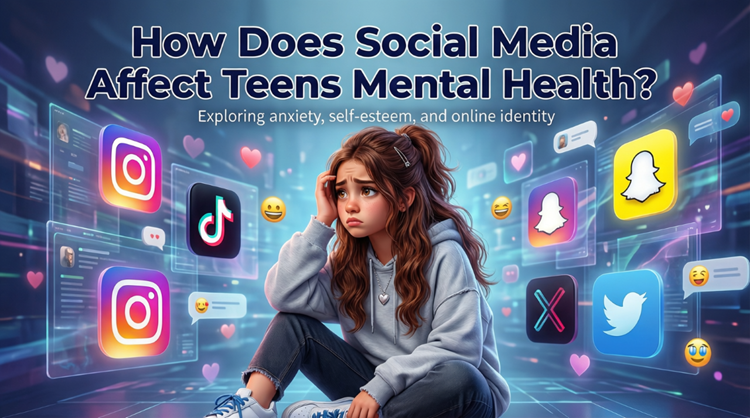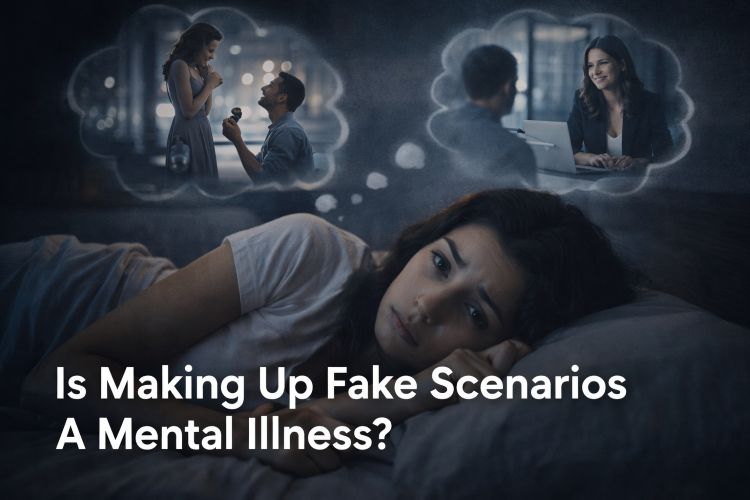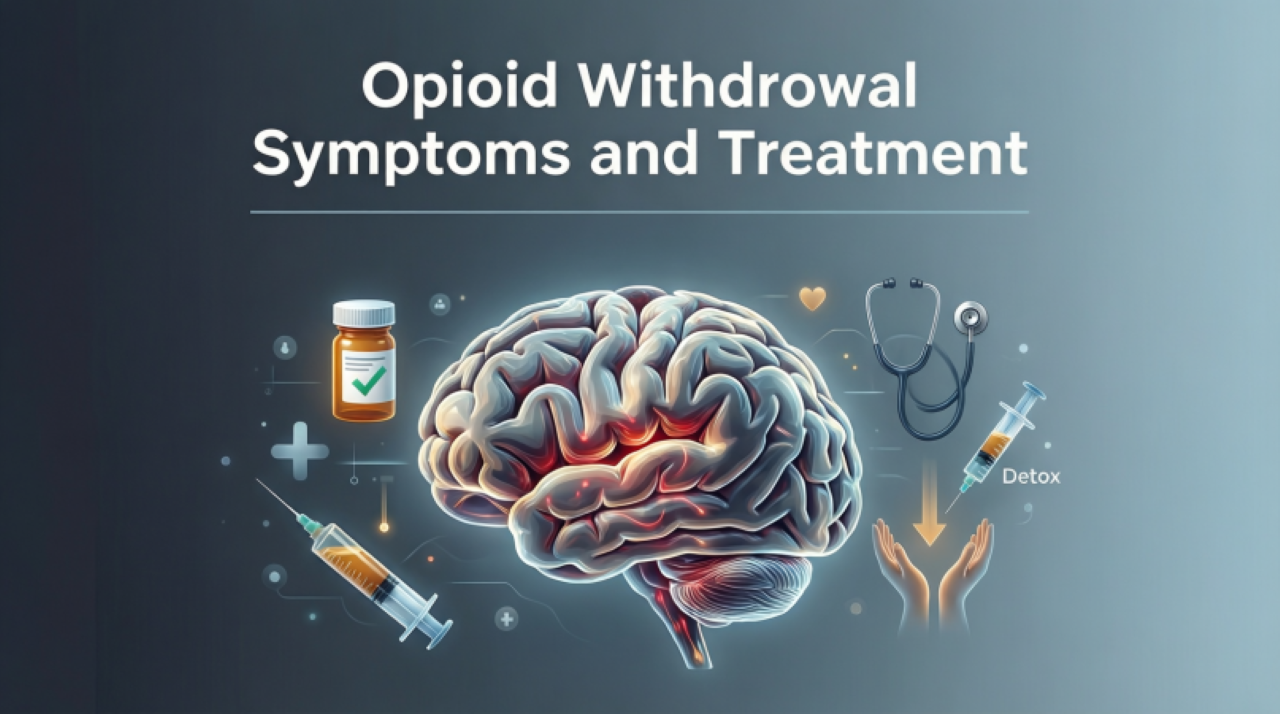Depression is one of the most popular mental conditions, which afflict million of people across the world. Although it is possible that individuals may require an intensive inpatient setting, many can have successful results in overcoming depression through treatment on an outpatient basis. Outpatient treatment programs provide individuals with a format of treatment and support to continue to live at home, work or attend school. It is this balance of flexibility and professional care that makes it a compelling and successful choice facing people with mild to moderate depression-or even with treatment resistant depression given the application of advanced care.
In this guide, we will describe what outpatient care treatment of depression involves, how it is done, who is well suited to receive outpatient care, and the type of depression treatment options.
What is Outpatient Depression Treatment?
Outpatient depression treatment can be defined as a mode of mental health care that does not involve a person staying in a hospital or residential placing at night. Rather, the patients may regularly go to scheduled therapy sessions, group programs, or medical visits but still carry out normal routines.
It is targeted to treat depression; with a friendly flexible approach using a professional approach. Outpatient programs may be as simple as an ordinary therapy session or as complex as an Intensive Outpatient Program (IOP) or Partial Hospitalization Program (PHP).
Simply put, when you wonder, what is outpatient care? you can say it is treatment that does not require you to stay in a hospital on a full-time basis.

How Does Outpatient Depression Treatment Work?
Outpatient care is usually in accordance with an individually designed therapy plan that is achieved subsequently to a thorough mental health evaluation. The way it typically plays out is the following:
- Initial Assessment – A mental medical worker examines symptoms and records history and personal objectives.
- Individualized Plan: The customized plan is based on the needs and may be in the form of therapy/ medication or lifestyle support.
- Therapy Sessions– Patients attend multiple therapy sessions on a weekly basis as individuals, a group or in a family.
- Medication Management – In cases where depression requires medication, psychiatrists prescribe and administer medications on-going.
- Progress Tracking – Treatment teams make adjustments to plans on a regular basis based on progress and responses.
Compared to the inpatient care, the outpatient treatment also enables the patient to go home after every session. It is less distractive, and this makes it more adaptable to ordinary life.
Who is Outpatient Treatment for Depression Best For?
Outpatient treatment would be most appropriate in case of the individuals who:
- Show signs of mild and moderate depression.
- Do not live in an unstable home or have no supportive family or friends.
- Are encouraged to take an active part in treatment.
- Are not in need of 24/7 monitoring and crisis stabilization.
- Who require continued care after their inpatient treatment or life within the residential setting.
Nonetheless, hospitalization may precede outpatient treatment of those with advanced depression, suicidal tendencies, and those with comorbid conditions as they can only be addressed in the inpatient setup.
Benefits of Outpatient Care for Depression
With outpatient care, several benefits will be obtained.
- Flexibility – Ability to work, study, or provide care to family with the treatment.
- Affordability- Inpatient programs in general are more expensive than outpatient.
- Access to Support – Patients will be able to feel connected to close people with their case going through support.
- Individualized Treatment – Treatment plans are made to suit the needs of a person.
- Continuity of Care – Patients are able to make transitions between inpatient treatment and outpatient services to receive additional care.
This is why outpatient mental care is a very viable alternative in the process of recovery by many individuals.
Depression Treatments in Outpatient Care
Outpatient programs offer a variety of evidence-based treatment programs of depression, they include:
Therapy (Talk Therapy)
- Cognitive Behavioral Therapy (CBT)
- DBT, or Dialectical Behavior Therapy
- Interpersonal Therapy (IPT)
- These treatments assist patients in learning to recognize negative thinking and patterns, being able to cope with emotions, and develop coping skills.
Medication Management
- Antidepressants like the SSRIs or the SNRIs
- Management of the treatment resistant depression involving adjustment of medication
- Subsequent visits make prescriptions work and be safe.
Group Therapy
Gives peer encouragement and support, and coping strategies.
Family Therapy
- Includes the loved ones to enhance communications and help recovery.
- Wellness and Hitched Lifestyle Services
- Nutrition guidance
- Stress busters methods
- Mindfulness and relaxationst
- Advanced Therapies (in depression that is resistant to treatment)
- Trans Cranial Magnetic Stimulation (TMS)
- Ketamine or Spravato Lancet treatments
- According to some cases, Electroconvulsive Therapy (ECT) is used
These strategies make patients avail a myriad of depression treatment plans according to their specific requirements.
Conclusion
Depression can be cured and an outpatient treatment of depression is an effective and less restrictive method toward recovery. Outpatient programs can be used to augment care when symptoms are minor or to continue the treatment of patients who have been through inpatient care as a way to maintain positive progress.
If residual feelings of depression are coming in the way of you or a loved one, reach out and get some help. A professional assistance is capable of making all the difference.
We can offer the Florida Atlantic Coast Treatment Solutions that will show you the way to recovery. Speak to a specialist (844) 643-2287 now and learn more about outpatient depression treatment.
FAQs
What is outpatient treatment for depression?
Outpatient treatment of depression is mental health services given by the professionals without requiring hospitalization. Patients move in and out to receive their thermapys in a scheduled timetable and go home.
What type of care is given to a depressed person?
One of the managements of depressed persons can be psychotherapy, administration of medication, support of lifestyles, or the implementation of highly advanced therapies such as TMS or ketamine treatment. This type of treatment will vary with the level of symptoms.
What can urgent care do for depression?
Urgent care centers are capable of addressing temporary relief, which may include stabilization, prescription, or referrals to a specialist mental health facility. Nonetheless, they cannot be used as an alternative to long-term treatment of depression.
What is an example of outpatient mental health?
Examples are weekly visits to the therapy and Intensive Outpatient Programs (IOP), Partial Hospitalization Programs (PHP). These enable one to acquire structured care on the environment that the individual lives.
When to go to outpatient mental health?
Outpatient care is best suited when the symptoms caused by depression are affecting the day-to-day activities but do not require close care. It is also suitable following after inpatient treatment.


